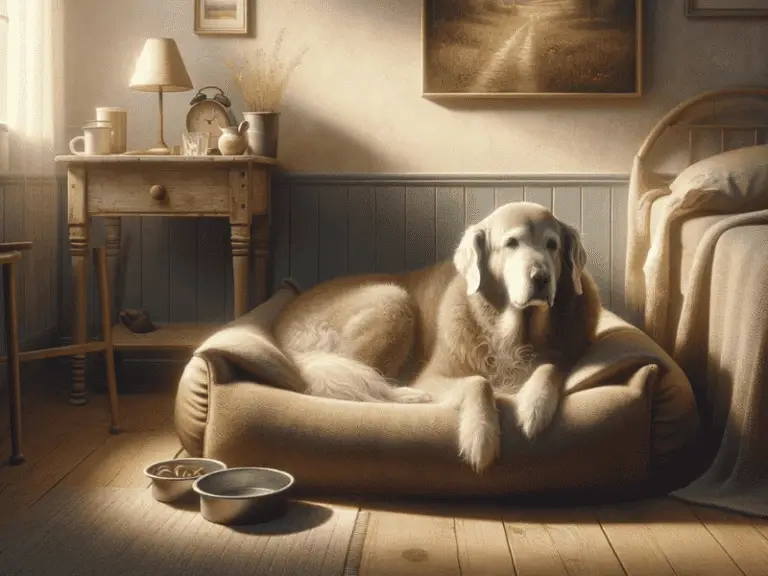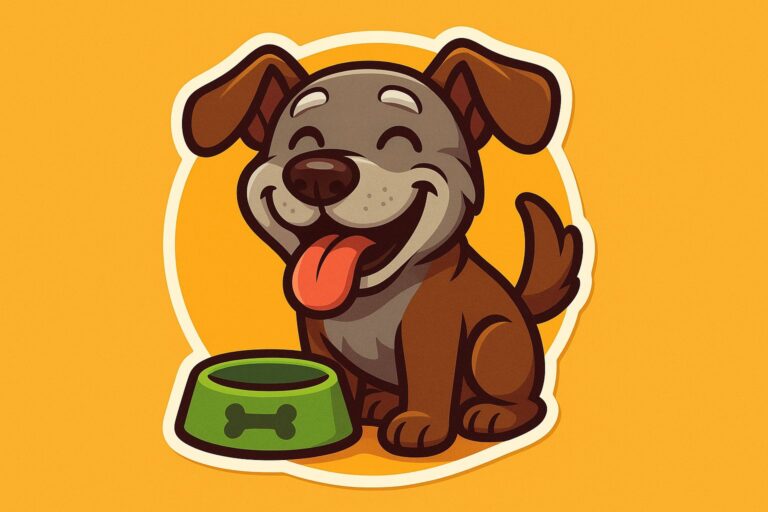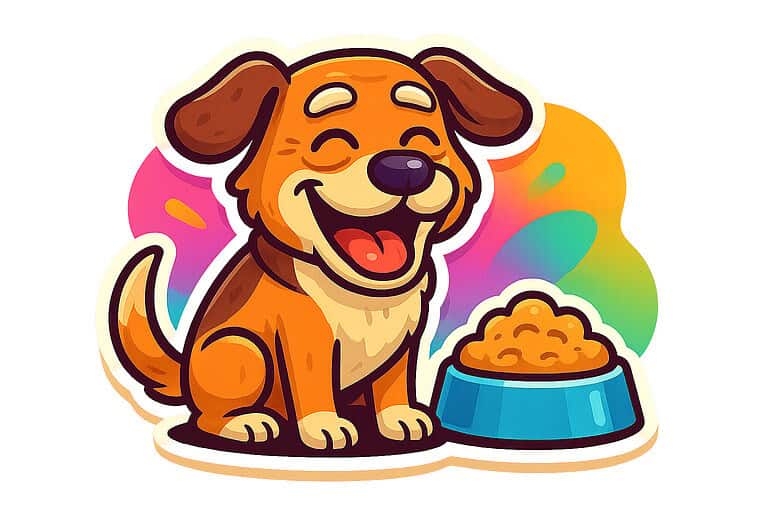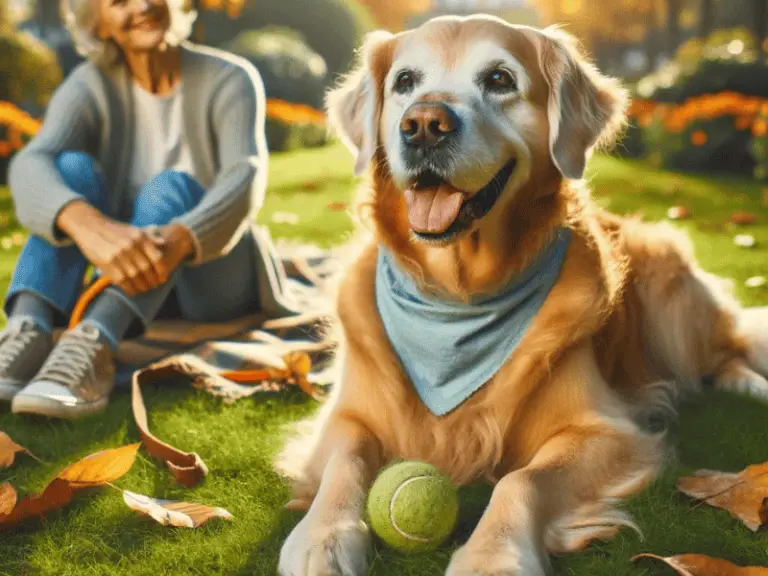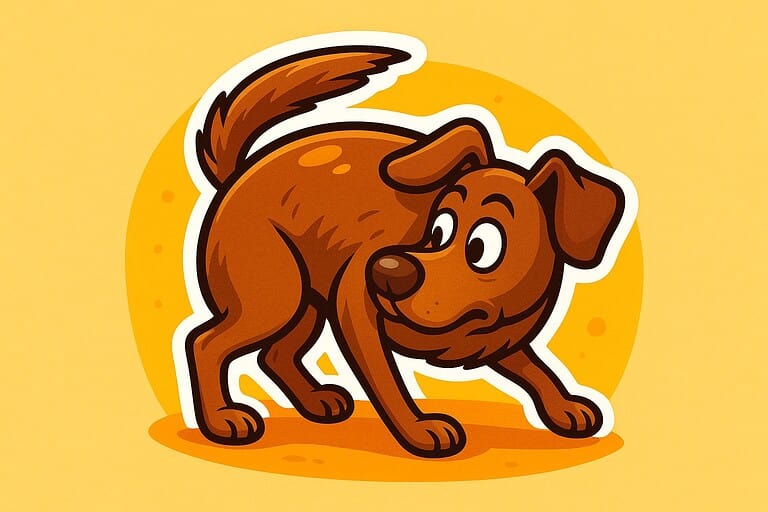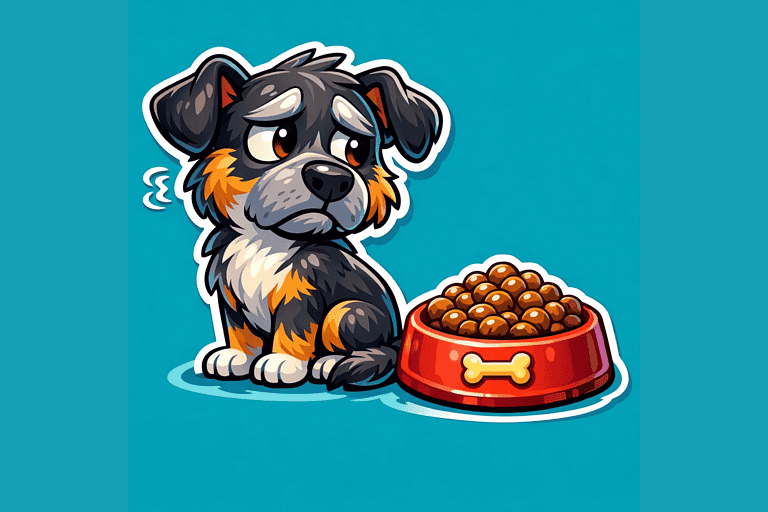My Senior Dog Is Restless at Night: 6 Tips That Help
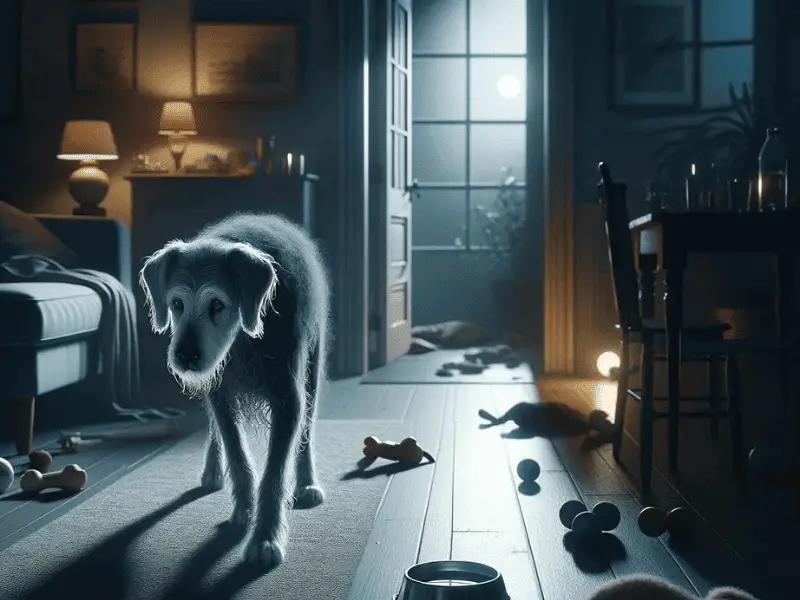
The wild years as a puppy and adolescent are over. Your four-legged friend has become a senior. Life slows down, he is more content and calmer.
Or maybe not? For some reason your older dog has started getting active at night lately. He is keeping not only himself but also you from sleeping. So you need a solution.
To find it, you need to know what causes nighttime restlessness in senior dogs. You will learn the reasons in this article, along with possible solutions.
Senior dog is restless at night: Bottom line
Nighttime restlessness in older dogs is linked to medical issues (dementia, arthritis), lack of stimulation, a disrupted sense of orientation, or loneliness. A visit to your vet will rule out physical problems.
After that, you can help your dog with routines, brain games, an orthopedic dog bed, or a night light. Only give calming aids like CBD oil in consultation with your veterinarian.
Do all older dogs get restless at night now and then?
Older dogs can sometimes get a bit quirky and act strangely. Nighttime restlessness is not necessarily part of that.
Of course, your dog will not sleep equally well every single night. There are many triggers for poor sleep. Sensitive dogs already have trouble falling back asleep during a thunderstorm or when rowdy teenagers are yelling outside the house.
If the nighttime restlessness only happens once in a while and you can tie it to such triggers, it likely has little to do with age.
❓ 8 reasons for nighttime restlessness
Nighttime restlessness is not a normal sign of aging. There is a reason for it, and you should find out what it is. As you will see in the sections below, some causes are more serious and may point to health problems.
Your senior becomes restless at night because
- he is understimulated,
- his sleep schedule is shifted,
- he is in pain,
- his dinner is too late,
- his sense of orientation is declining,
- he is lonely,
- he has a full bladder, or
- he is experiencing dementia.
❓ Reason #1: Lack of stimulation
Dogs sleep a lot. Senior dogs sleep even more. Depending on breed, exact age, and individual needs, your dog may rack up 16 to 22 hours. That sounds like an awful lot.
Keep in mind that some of those hours are just resting rather than deep, restorative sleep.
Even in old age, your dog needs engagement and stimulation when he is awake. If physical activity is limited, mental work becomes even more important. If both are lacking, your dog will make up his sleep needs during the day.
At night he is rested and wants something to do.
❓ Reason #2: Shifted sleep schedule
The increased need for sleep can shift your dog’s sleep schedule even without an actual lack of stimulation.
This happens gradually and you might not notice it at first. At some point the rhythm can be so off that your dog wants to turn night into day.
❓ Reason #3: Pain
Pain keeps you awake, that much is clear. With stomach or joint pain, falling asleep is simply hard.
When you try to move at night, the pain reminds you it is there.
Joint and back problems are especially common with age. Your dog may be dealing with arthritis or spondylosis. Both can rob him of sleep. It already starts when he tries to fall asleep because it is hard to find a sleeping position that does not hurt.
If lying down hurts, many dogs choose to stay awake instead. Since they also do not like being alone in that state, they look for their people.
It is also possible your dog is looking for a sleeping spot that promises more restful sleep. You recognize the pacing as restlessness.
Keep reading: 10 signs your dog is in pain
❓ Reason #4: Dinner is too late
As dogs age, digestive issues become more common. Many need especially easy-to-digest food or smaller portions to avoid overtaxing the stomach.
If the last meal of the day is right before bedtime, it can disrupt your dog’s sleep. You probably know from your own experience that falling asleep on a full stomach is harder. That is because digestion takes a lot of energy.
Sleep becomes less restorative. Your dog feels the same way.
❓ Reason #5: Poor orientation
Even though dogs are known for their excellent sense of smell and hearing, their eyes are most important for orientation. In the last quarter of life, more and more dogs develop cataracts.
Kirk N. Gelatt and Edward O. MacKay found that these breeds are particularly affected:
- Smooth Fox Terrier,
- Havanese,
- Bichon Frisés,
- Miniature Poodle,
- Boston Terrier,
- Australian Silky Terrier, and
- Toy Poodle
Cataracts can affect any breed or mixed breed. When your dog wakes up at night, it is naturally dark around him.
That further disrupts his orientation. If he wants a drink or to find you, he might get turned around in the dark. That increases his restlessness and can even lead to real fear with barking and howling.
❓ Reason #6: Loneliness
If your older dog usually sleeps alone, that may bother him more with age. He notices his body is not keeping up the way it used to.
He feels more vulnerable and would rather sleep near you. As a result, he has a harder time settling on his own, stays awake, and roams around.
❓ Reason #7: Full bladder
Older dogs need to go out more often and at shorter intervals. Their bladder muscles weaken, so they cannot hold as much. At the same time, senior dogs often need more water. They drink more and need to go outside more often for that reason alone.
❓ Reason #8: Dementia
Dementia in dogs, as in people, is largely not well understood. We do know some factors that can contribute to the condition.
For example, a research team writing in Scientific Reports found that dogs that get little exercise are more likely to develop it.
Dementia makes your dog quirky, forgetful, and confused. His sense of orientation suffers, even if he can see well. A strong urge to move is also typical of dementia.
That is why many care homes for people with dementia are laid out in a circle. Residents can move a lot without leaving the facility.
So nighttime restlessness, especially in an older dog, can point to dementia. You can learn how to recognize dementia in your dog in this video.
6 tips to help your senior get more rest at night
Even if your older dog has conditions that cause restlessness, there is a lot you can do. Try the tips I have put together for you.
💡 Tip #1: Bedtime routine
Routines help your dog understand your daily schedule. That is convenient, since most people already have parts of their day that repeat.
In the evening, routines help your dog understand that night is starting.
Such a routine could be dinner, followed by some cuddling on the couch.
Then you go outside one more time before you wind down in front of the TV. After that you take your dog to bed and say good night.
💡 Tip #2: Brain games
Brain games do not just help slow the progression of dementia. They also help healthy dogs keep their brains young and sharp.
They burn energy too, so your dog can be suitably tired without a lot of physical strain.
Try out which brain games your dog enjoys most. Cup games and scent work in general are a hit with almost every dog. You can also practice cues. They do not have to be tricks. Just use the hallway to work on Stay and Come.
💡 Tip #3: Veterinarian
If you suspect dementia or notice signs of pain, your veterinarian is your go-to. There are medications that may help with dementia.
With spondylosis and arthritis, your dog will at least need pain relief. What else makes sense is a decision you should make together. With the right medications, nights usually become calmer again.
💡 Tip #4: Orthopedic dog bed
An orthopedic dog bed can also help with pain. Thanks to memory foam, these beds provide especially good support for your senior’s body. They will not make arthritis or spondylosis disappear, but they can relieve pressure sores and muscle tension.
Keep reading: Orthopedic dog bed for your furry friend: sense or nonsense?
💡 Tip #5: Night light
A night light helps with dementia and reduced vision. Your dog can see better and find his bed again. Depending on the size of your home, you may need several lights. Place them so the most important paths are illuminated.
That includes the paths between the dog bed, the water bowl, and your bedroom.
💡 Tip #6: Earlier feeding
At least three hours should pass between the last meal and bedtime. If your schedule has been different, try moving dinner earlier to see if your dog sleeps better.
That way he has more time to digest before he is supposed to sleep.
Supplements to help calm them?
While researching this article I came across the tip to calm a senior at night with CBD oil. I am not a big fan of that. As you have learned, there are reasons for his restlessness.
CBD oil does little to address those. Yes, it may make him calmer. But it will not treat arthritis or loneliness.
After you have tried all other options, you can of course consider CBD oil in consultation with your veterinarian. Just do not use it to quiet your dog without getting to the bottom of the cause of the restlessness.
Conclusion
Nighttime restlessness is not part of getting old. Your dog especially needs plenty of sleep in old age to recover well. Otherwise, sleep deprivation can increase susceptibility to infections, for example.
So do not accept the restlessness as a normal sign of aging.
It can also be linked to physical problems. Have your senior checked over by your veterinarian. A bedtime routine and staying close to you will help your dog through the night.
While calming aids may mask the symptom, they do not address the underlying cause of the restlessness. I would only recommend using them if nothing else works.
Frequently asked questions
Warum wandert mein alter Hund nachts umher?
Das Umherwandern könnte auf zu viel Energie, Stress oder eine beginnende Demenz zurückzuführen sein. Möglicherweise ist dein Hund auch einsam oder hat Orientierungsprobleme.
Warum schläft mein Hund nachts nicht mehr durch?
Krankheiten, die Schmerzen verursachen halten viele alte Hunde nachts wach. Auch Husten stört den Schlaf deines Vierbeiners.
Wieso fängt ein alter Hund nachts an zu bellen?
Nächtliches Bellen hängt mit Unterforderung, Einsamkeit oder Demenz zusammen. Dein Hund möchte damit Energie und Frust abbauen oder deine Aufmerksamkeit erregen.

